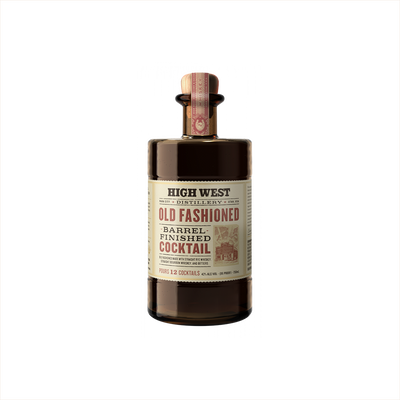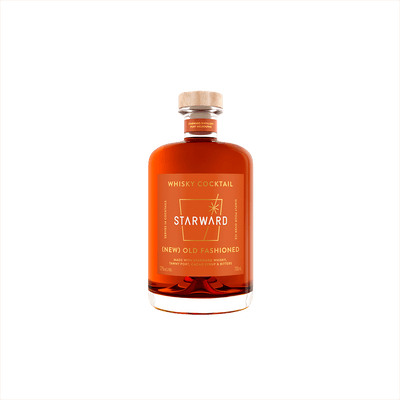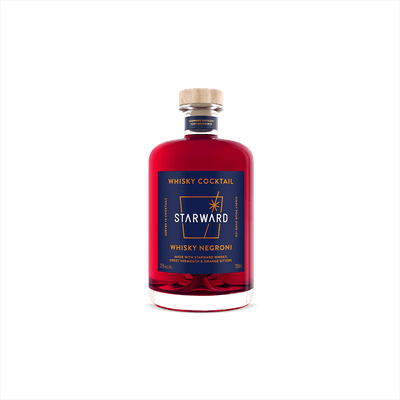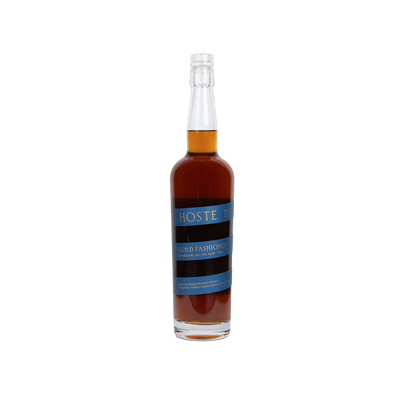Classic Cocktails
What is Classic Cocktails?
Classic Cocktails represents a premium category of Ready to Drink beverages that brings timeless bar recipes directly to your glass with professional-quality execution. These carefully crafted libations feature the exact same recipes bartenders have been perfecting for decades—think Manhattan, Old Fashioned, and Negroni—but with the convenience of crack-and-pour simplicity. What defines Classic Cocktails is their commitment to authenticity, using real spirits, proper ratios, and traditional ingredients to deliver the genuine taste experience you'd expect from a skilled mixologist.
Learn More About Classic Cocktails
What makes Classic Cocktails unique?
Classic cocktails stand apart from other ready-to-drink options because they're built on time-tested recipes that bartenders have perfected over decades or even centuries. While many RTD beverages chase trendy flavors or gimmicky combinations, classic cocktails focus on balance and technique—think perfectly proportioned Negronis, Old Fashioneds, and Martinis that respect the original formulations. The best RTD classic cocktails use premium spirits and real ingredients rather than artificial flavors, giving you the authentic taste experience you'd expect from a skilled bartender without the need for a full home bar setup.
How is Classic Cocktails made?
Classic cocktails are made by combining specific base spirits with complementary ingredients like bitters, citrus, sugar, or vermouth using traditional techniques that have been refined over decades. Each recipe follows precise ratios and methods—whether it's stirring a Manhattan with whiskey and sweet vermouth over ice, shaking a Daiquiri with rum, lime juice, and simple syrup, or building an Old Fashioned by muddling sugar with bitters before adding whiskey. The key lies in understanding how different preparation methods affect the final drink, from the dilution achieved through proper stirring versus shaking to the importance of fresh ingredients and quality spirits.
How do you drink Classic Cocktails?
Classic cocktails are meant to be sipped and savored in their intended form - mixed drinks that balance spirits with other ingredients like citrus, sugar, bitters, or vermouth. These time-tested recipes like the Old Fashioned, Manhattan, or Daiquiri are rarely consumed neat or as shots since their magic lies in the careful interplay of flavors achieved through proper mixing and dilution. Classic cocktails shine during celebratory moments, intimate dinner parties, and sophisticated social gatherings year-round, though lighter classics like gin-based martinis and fizzes tend to favor warmer months while whiskey and brandy cocktails provide comfort during cooler seasons.
How do I choose a good Classic Cocktail?
Start by considering your mood and the occasion—a crisp Martini works perfectly for sophisticated evenings, while a refreshing Mojito suits casual summer gatherings. Think about your flavor preferences too: if you love citrus and bright notes, gravitate toward Daiquiris or Whiskey Sours, but if you prefer rich, spirit-forward drinks, opt for an Old Fashioned or Manhattan. The best classic cocktail is simply the one that matches your taste and the moment you're in, so don't overthink it—these recipes have survived decades because they work beautifully when made well.
Nutritional Information for Classic Cocktails
Understanding what goes into your favorite drinks can help you make informed choices while still enjoying great cocktails. Here's the nutritional breakdown for some beloved classics:
Manhattan
Typical Calorie Range per Ounce: 35-45 calories
Typical Carbohydrate Range per Ounce: 1-2 grams
Typical Sugar Range per Ounce: 1-2 grams
Typically Gluten Free: No (whiskey may contain gluten)
Martini (Gin)
Typical Calorie Range per Ounce: 25-35 calories
Typical Carbohydrate Range per Ounce: 0-0.5 grams
Typical Sugar Range per Ounce: 0-0.5 grams
Typically Gluten Free: Yes
Old Fashioned
Typical Calorie Range per Ounce: 40-50 calories
Typical Carbohydrate Range per Ounce: 2-4 grams
Typical Sugar Range per Ounce: 2-4 grams
Typically Gluten Free: No (whiskey may contain gluten)
Margarita
Typical Calorie Range per Ounce: 25-35 calories
Typical Carbohydrate Range per Ounce: 2-4 grams
Typical Sugar Range per Ounce: 2-4 grams
Typically Gluten Free: Yes
Daiquiri
Typical Calorie Range per Ounce: 30-40 calories
Typical Carbohydrate Range per Ounce: 2-3 grams
Typical Sugar Range per Ounce: 2-3 grams
Typically Gluten Free: Yes
Negroni
Typical Calorie Range per Ounce: 35-45 calories
Typical Carbohydrate Range per Ounce: 3-5 grams
Typical Sugar Range per Ounce: 3-5 grams
Typically Gluten Free: Yes
Moscow Mule
Typical Calorie Range per Ounce: 15-25 calories
Typical Carbohydrate Range per Ounce: 3-5 grams
Typical Sugar Range per Ounce: 3-5 grams
Typically Gluten Free: Yes
Whiskey Sour
Typical Calorie Range per Ounce: 30-40 calories
Typical Carbohydrate Range per Ounce: 2-4 grams
Typical Sugar Range per Ounce: 2-4 grams
Typically Gluten Free: No (whiskey may contain gluten)
Cosmopolitan
Typical Calorie Range per Ounce: 25-35 calories
Typical Carbohydrate Range per Ounce: 2-4 grams
Typical Sugar Range per Ounce: 2-4 grams
Typically Gluten Free: Yes
Mojito
Typical Calorie Range per Ounce: 20-30 calories
Typical Carbohydrate Range per Ounce: 2-4 grams
Typical Sugar Range per Ounce: 2-4 grams
Typically Gluten Free: Yes
Important Note: Please always check detailed product information and consult with manufacturers to confirm gluten-free status, especially if you have celiac disease or severe gluten sensitivity. Distillation processes and additional ingredients can vary between brands and may affect gluten content.
Scrolled this far? Your reward? Classic Cocktails Trivia!
- The Martini's olive garnish wasn't originally about flavor—it was about sobriety testing. In the early 1900s, bartenders would watch how customers handled picking up that slippery little olive with a toothpick. If you could manage it gracefully, you probably weren't too far gone. The three-olive limit? That supposedly came from the superstition that odd numbers brought good luck, though cynics say it was just portion control.
- The Manhattan cocktail got its name not from the borough, but from a specific political event in 1874. Legend credits Jennie Jerome (Winston Churchill's mother) with creating it for a banquet at the Manhattan Club celebrating Samuel Tilden's gubernatorial victory. The original recipe called for equal parts whiskey and sweet vermouth—a much sweeter drink than today's standard 2:1 ratio that would make modern drinkers wince.
- The Bloody Mary was originally called "Red Snapper" when it debuted at New York's St. Regis Hotel in the 1930s. The name change happened because the hotel's stuffy clientele found "Bloody Mary" too vulgar for their refined palates. Ironically, the drink's creator, Fernand Petiot, had already been serving the same cocktail in Paris during the 1920s, where French patrons had zero issues with the gory moniker.
- The Old Fashioned earned its name as a complaint, not a compliment. By the 1880s, bartenders were getting fancy with cocktails, adding fruits, liqueurs, and elaborate garnishes to everything. Fed-up customers would walk into bars and demand their whiskey cocktail be made "the old-fashioned way"—just spirits, sugar, bitters, and water. The grumpy purists accidentally created one of America's most enduring drink names.
- The Daiquiri saved the U.S. Navy from scurvy, but not how you'd expect. While stationed in Cuba during the Spanish-American War, American engineer Jennings Cox mixed local rum with lime juice and sugar—partly for taste, partly because the lime's vitamin C prevented scurvy among workers. The drink became so popular with naval officers that they brought the recipe back to Washington D.C., where it eventually landed at the Army and Navy Club.
Higher-proof spirits can be intense. Mix carefully, taste thoughtfully, and enjoy responsibly.
Gift message (optional)





